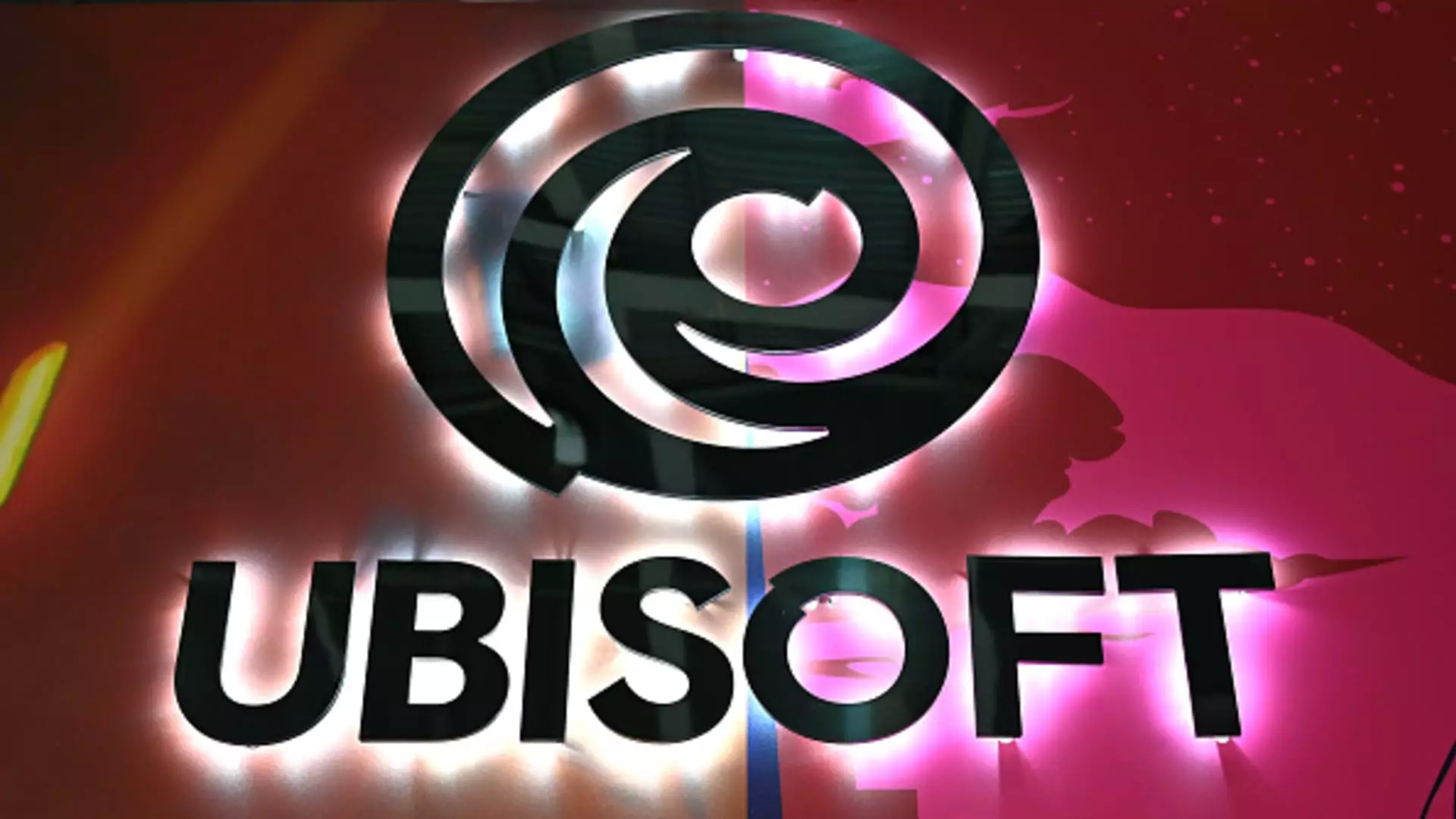The world of video gaming has always been rife with ups and downs that resonate well beyond the confines of the gaming community. Recently, Ubisoft, a cornerstone of the gaming industry due to its legendary titles like “Assassin’s Creed,” witnessed a remarkable surge of more than 30% in its share price. This spike was closely tied to reports suggesting that Tencent, a colossal Chinese tech entity, and Ubisoft’s founding Guillemot family might be strategizing a buyout. This situation raises poignant questions about the future of Ubisoft in an increasingly volatile market landscape.
Ubisoft’s recent struggle has seen its market value plummet over the past year, losing more than half its worth. The current speculations on potential buyouts seem to have generated optimism among investors, resulting in a significant share price increase of 33.5% following the report. Analysts and market watchers are acutely aware that such abrupt stock movements often reflect investor sentiment rather than concrete operational changes within the company. While the surge may temporarily relieve some financial pressure, it remains a symptom of broader underlying issues challenging Ubisoft.
Tencent’s interest in Ubisoft is perennial, and its 10% stake underscores a strategic investment rather than a hasty buyout attempt. By potentially collaborating with the Guillemot family, who hold a significant minority share, Tencent may be contemplating a joint venture that could revitalize the struggling company while further consolidating its influence in the Western gaming market. For the Guillemot family, owning a private company might present an opportunity to structure the franchise’s vision without the scrutiny of public shareholders, which could prove advantageous in steering Ubisoft out of its current quagmire.
Ubisoft’s predicament is emblematic of a larger trend facing the gaming industry, marked by a slowdown in revenues and splintering consumer engagement. The postponement of key titles like “Assassin’s Creed Shadows” and reduced profit expectations illustrate the reality that even established franchises grapple with consumer demands and market dynamics. Gamers today are increasingly turning to older titles, a phenomenon exacerbated by economic constraints and a wider array of entertainment options.
The anticipated growth of the global games market at roughly 2.1% year-over-year in 2024 starkly contrasts with the explosive expansion seen during the pandemic. James Lockyer, a tech analyst at Peel Hunt, points to this “cost-of-living squeezed wallet,” indicating that consumer spending is diversifying, which directly affects new gaming titles’ performance.
Compounding these challenges, activist investor AJ Investments has emerged with a call for significant reforms at Ubisoft. Their push for executive changes and a potential sale to private equity groups or Tencent suggests a growing dissent among stakeholders regarding current management. Such pressures may lead to a pivotal moment in Ubisoft’s leadership structure, as embarking on a new governance path may provide the company with the dynamism required to recover from its current mire.
CEO Yves Guillemot’s announcement of an executive committee review demonstrates that there is some recognition at high levels that a change is necessary, albeit the internal acknowledgment might be delayed amidst external pressures and scrutiny. As the company navigates this transition, the outcomes of these efforts will be evident.
As speculation mounts about a potential buyout, the larger discourse surrounding Ubisoft raises profound questions about the company’s future. Will partnering with Tencent and the Guillemot family yield the much-needed turnaround for Ubisoft? Or will this attempt lead to a cultural clash that might further divide the firm? Without a doubt, the ramifications of these movements will not only impact Ubisoft but will also ripple across the gaming industry, particularly as it grapples with evolving consumer behavior and market forces.
While the surge in share prices may bring a temporary respite, the road ahead for Ubisoft is fraught with challenges that will require strategic agility and innovative thinking to navigate. Whether through buyouts, leadership changes, or a renewed focus on consumer engagement, the ultimate test lies in the company’s ability to adapt and thrive in a competitive gaming landscape that shows no signs of slowing down.

